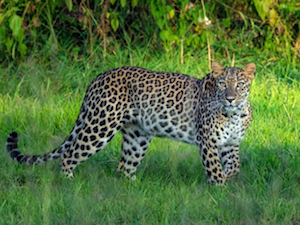Hannah Arendt and the Politics of Truth
We can shout truth to power and it will never be heard, because truth and politics don’t stand on common ground.
SHOCKER: 74 Percent of MS-13 Gang Members Charged Were In United States Illegally.
Fast Company – “A powerhouse list of professors from Stanford University, MIT, Johns Hopkins University, Harvard School of Public Health, and others want you to know there’s a big problem in AI research. Dozens of AI experts signed an article in Nature saying that unlike research in other scientific fields, top AI studies are often not transparent and reproducible, and they’re frequently published without details such as full code, models, and methodology. Those findings are then picked up in mainstream media headlines worldwide. They point to a study also published in Nature this past January, where Google Health reported an AI system that could screen for breast cancer faster and better than radiologists. The study apparently lacked details like methodology and code. “On paper and in theory, the study is beautiful. But if we can’t learn from it, then it has little to no scientific value,” says lead author Benjamin Haibe-Kains, senior scientist at Princess Margaret Cancer Centre. “Journals are vulnerable to the hype of AI.
The New York Times – “Botanists have laid out evidence that dozens of North American trees, herbs, plants and shrubs have gone extinct since European settlers arrived. “It isn’t easy to say that anything has truly “gone extinct.” For starters, an untold number of creatures — especially teensy, nocturnal or otherwise cryptic ones — have vanished before humans ever noticed them. Once biologists suspect a documented species’ extinction, the challenge shifts to proving whether it has disappeared forever, or just disappeared from sight. Even when scientists are 99 percent certain something is gone, they may never know whether pathogens, habitat disturbance, invasive species, climate change or some other force drove them out of existence. “There’s a sense that we’ve got it down — that we know our flora and we know what’s extinct,” said Anne Frances, the lead botanist for NatureServe, which promotes wildlife conservation. That belief couldn’t be further from the truth, she said.
In a study published in August in Conservation Biology, Dr. Frances and 15 other researchers from across the United States quantified how many trees, shrubs, herbs and flowering plants have vanished from North America since European settlement. After compiling existing information on presumed extinct species and working with local botanists to vet the data, the group narrowed down a list of 65 plant species, subspecies and varieties that have been lost forever in the wild. That figure is almost certainly an underestimate, said Wes Knapp, a botanist at the North Carolina Natural Heritage Program and a co-author of the study. “That 65 is not rock solid,” he said. “We’re still documenting what’s on the ground, and you can never really prove a hypothesis like ‘extinct.’” After all, scientists rediscover extinct species all the time, as well as uncover secret extinctions hidden in natural history museum collections. “Humans like to put things into neat categories, but nature doesn’t present itself that way,” Dr. Frances said. “Every plant on this list is its own little mystery.”…”
The Problem With UK Literary Prizes
In a country where publishing is so concentrated in the hands of just a few conglomerates who have acquired some of Britain’s most successful small presses, the chances of British novelists who are neither English, nor published by major London publishers, winning seems to be getting smaller. And for non-English UK novelists published by small presses (self-published works are ineligible for the Booker), the Booker is simply not a plausible option. – The Conversation

